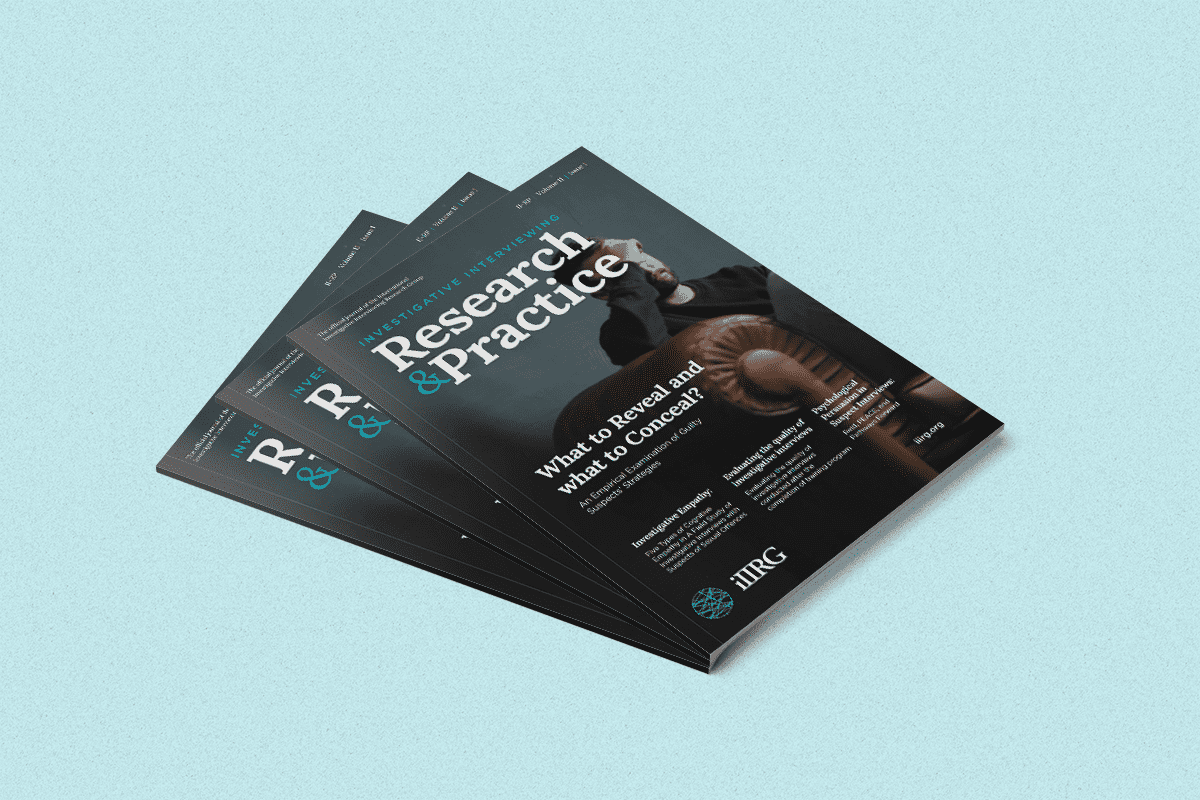II-RP JOURNAL SUBMISSION GUIDELINES

II-RP SUBMISSION GUIDELINES
Please see below for specific guidelines related to submissions to the journal
Submission Guidelines
A wide range of articles will be considered for inclusion in II:RP given the multi-disciplinary nature of the iIIRG. Broadly, we will consider individual research papers or practitioner case studies in relation to any area of investigative interviewing, including:
• Interviewing suspects, witnesses, or victims;
• Expert advice to interviewers;
• Interview training and policy;
• Interview decision-making processes;
• False confessions;
• Detecting deception;
• Forensic linguistics;
• Health and occupational safety;
• Workplace accident investigations.
The list of topic areas is purely indicative and should not be viewed as exhaustive.
Article Submission
All submissions made to II:RP should be in English and submitted online via https://iiirg.org/resources/journal/ii-rp-journal-submission/
Submission of an article to II-RP will be taken to imply that it represents original work not previously published and is not being considered elsewhere for publication and, if accepted for publication, it will not be published elsewhere in the same form, in any language, without the consent of the II:RP Editor.
Article Types
Articles can be in these formats:
i. Empirical Research: approximately 5000-8000 words (including references).
ii. Early Career Research Articles
a. We are keen to help ECRs build their CV and professional network by publishing with us. Our goal is to feature an ECR Spotlight section in each issue, which will highlight work completed by ECRs (e.g., Master’s, PhD, Postdoc findings). Our preference is that these articles would provide a general summary of the ECR’s work, would be single author only, approximately 1,000 words (not including references), and APA formatted. We would also include a bio that would include the supervisor(s).
iii. Worldview Articles
a. We are keen to receive articles, preferably co-authored by an academic and practitioner, on the current state of evidence and practice on a particular topic.
iv. Practitioner Case Studies
a. Have an interesting case study to share? We would love to hear from you! Case studies are a great way to showcase how evidence-informed practices are improving real-world practices. Presenting your case study may also be a great way to seek guidance on a particular tricky interviewing issue.
v. Commentaries: approximately 4000-6000 words (including references).
vi. Book reviews: approximately 1000-1500 words (including references).
Manuscripts should be submitted as word documents. They should be typed in double-space with wide margins and adhere to APA guidelines. Please make sure that all acronyms are clearly defined in parentheses the first time they are used.
Title page. The title page should contain the title of the paper, the name and full institutional/ organisational postal address of each author and an indication of which author will be responsible for correspondence and proofs (this should also include e-mail address). Abbreviations in the title should be avoided.
Abstract. The abstract should not exceed 200 words and should be presented on a separate page (together with the title of the article) summarising the significant coverage and/or findings.
Keywords. The abstract should be accompanied by five key words or phrases that between them characterise the contents of the paper. These will be used for indexing and data retrieval purposes.
Author Biographies. Please provide a short (2-3 sentences) bio for each of the authors.
Body of empirical articles: Main text introduction, Method (including ethics is applicable), Results, Discussion, References, Appendices (if applicable).
